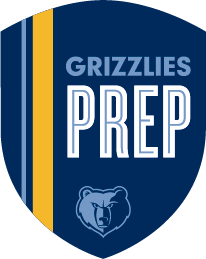3 Skills Every Teacher Needs to Succeed
Be the Teacher Your Students Deserve
Students in Memphis deserve to have the very best teachers working with them every single day. At Grizzlies Prep, we have found there are three areas of skill that every teacher needs to be successful whether teaching in a virtual or physical classroom. These areas of skill are lesson preparation, data-driven instruction, and upholding high expectations.
Skill 1: Lesson Preparation
Whether you write your lessons or they’re created for you, lesson preparation is a crucial factor in successful lesson execution and increasing student achievement. Strong lesson preparation includes (but is not limited to): designing materials with students in mind, internalizing content contained in the lesson, and crafting questions that guide students towards the major understandings within the lesson and address potential student misconceptions.
Each component of lesson preparation requires teachers to put themselves into the shoes of their students. Whether it be the layout of what’s physically in front of students or the content teachers expect them to access, we must constantly ask ourselves “how will students experience this?”
Great teachers attempt to get into the minds of their students as they review the tasks they’ll ask students to complete. They don’t just create answer keys. Teachers visualize how they want their students to think as they engage with the material in front of them.
Skill 2: Data-Driven Instruction
Effective teachers must use data to inform their instructions down to the daily level. This involves teachers assessing, analyzing data, and taking action in a perpetual cycle. Effective use of data starts with having a clear goal for what you want students to learn from a lesson or a collection of lessons and creating or identifying an assessment to measure whether you were effective in driving students towards the goal.
Assessments can come in a variety of forms ranging from formal tests/quizzes to less formal in-class checkpoints. Once teachers assess, they need to identify common misconceptions held by students and determine the most appropriate way to address them. Taking action involves teachers responding to data by addressing misconceptions, whether it be whole-group, small-group, or individually, and then re-assessing to see if students met the goal.
Collecting and using student data is crucial to the success of teachers, and therefore students, because it puts the onus on us, as instructors, to always know where our students are, where they need to be, and how to get them there.
Skill 3: Hold High Expectations
Successful teachers know that every action communicates what they believe students are capable of. When teachers uphold high expectations they are communicating that they believe every student is capable of greatness. Establishing and maintaining high expectations is a foundational skill. High academic and behavioral expectations start with teachers having ambitious but feasible goals for where they want their class to be by the end of the year. Then they plan backwards to determine what things need to be true every day to reach those goals. Successful teachers know that to achieve significant academic gains, they must set a high bar for academic rigor and student behavior. Setting the bar, however, is only the beginning. The hard work is in not only upholding expectations every day but consistently evaluating and recalibrating them to ensure they’re aligned with the class goals.
Teachers having high academic and behavioral expectations for students, and truly believing that their students are capable of greatness, is the first step to doing everything in their power to ensure students are meeting or exceeding the bar. We believe that if teachers develop these three skills, they’ll drastically improve student performance and be the excellent teacher that students deserve.


